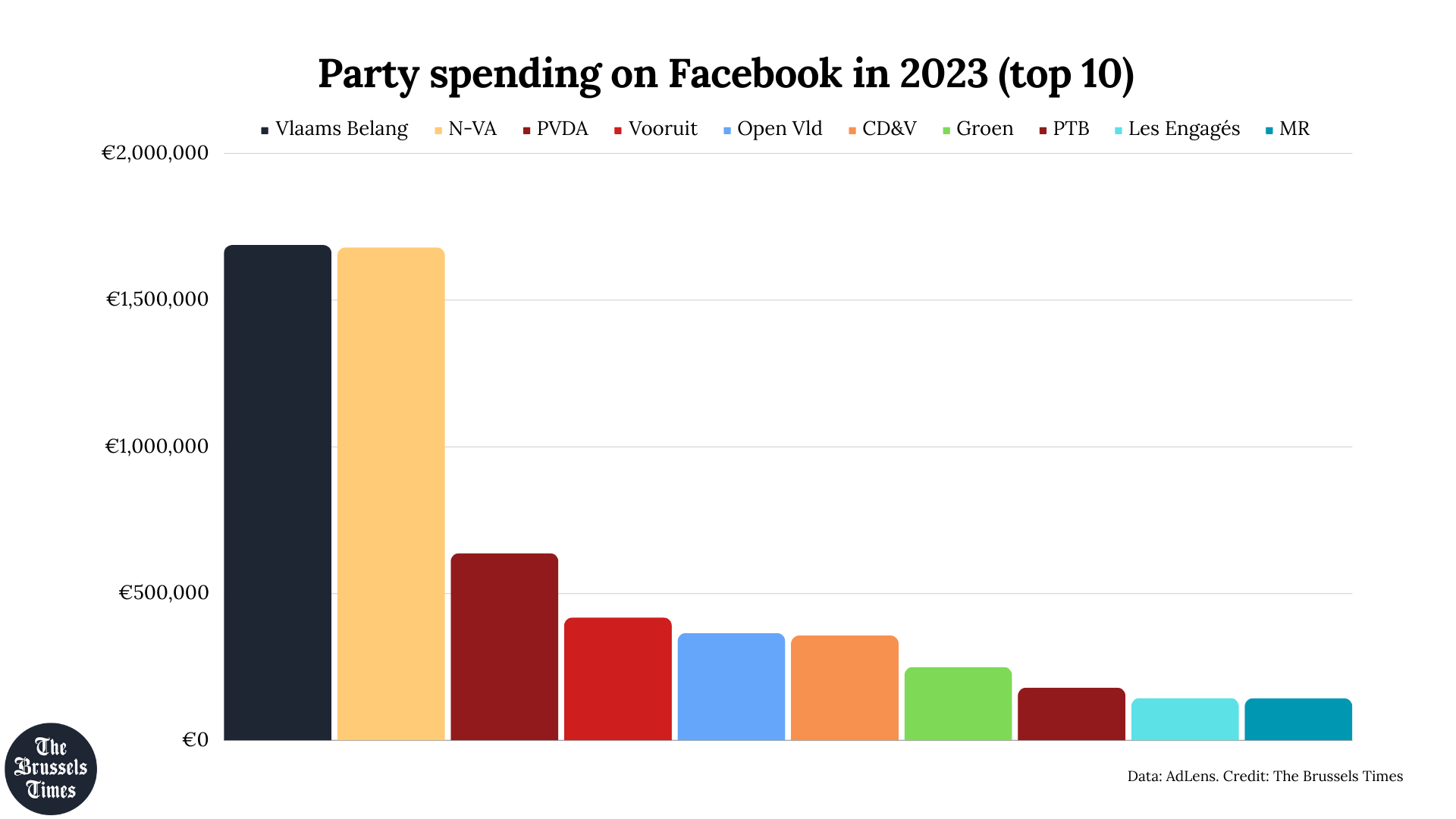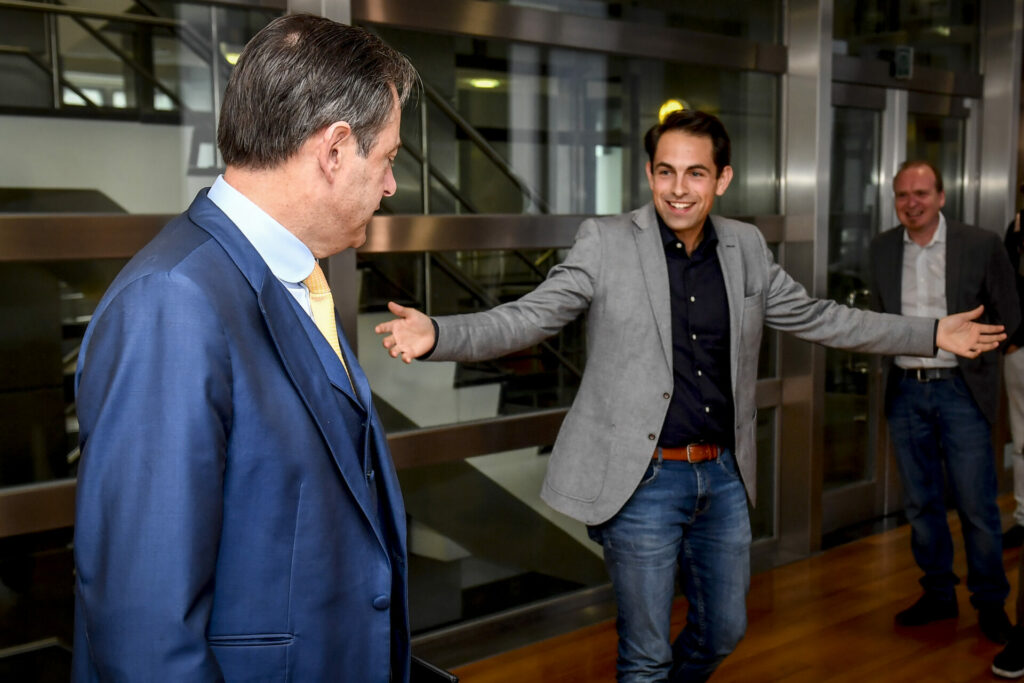The Belgian elections are fast approaching and it becomes clear that campaign mode is underway when looking at political advertising spending of Belgian political parties – which is up by €1 million compared to last year.
Flemish parties have come to be the biggest spenders in Europe for political advertising on social media. The trend started after the far-right Vlaams Belang party had very successful 2019 electoral results as the only party to place large-scale paid ads on Facebook. Since then, many others have followed suit.
Belgian political parties spent slightly more than €6 million in 2023 on political advertising on the networks of the American company Meta (for ads on Facebook and, to a much lesser extent, Instagram), reports AdLens, an organisation that conducts research into advertising spending.
This is 20% more than in previous years – around €1 million. The spending on all political pages (main page, personal pages, local pages and affiliate pages) combined was €4.97 million in 2022, €4.74 million in 2021 and €4.84 million in 2020.

Party spending on Facebook in 2023 (excluding VAT). Source: Adlens / Ad Library - Facebook.
In 2023, the far-right Vlaams Belang overtook N-VA as the biggest advertiser with €1,688,244 (+44%), around €8,000 more than the Flemish nationalist party. N-VA reduced its spending by 2% compared to 2022 (€1,680,074).
Vlaams Belang's spending varies greatly from month to month: for example, the party spent €64,262 in August compared to €291,646 in May when it launched the "Make them Listen" campaign. In November and December, the "We are listening to you!" campaign cost €160,000 for the party's main page alone.
The N-VA also varies its spending, but to a lesser extent. The Flemish conservative nationalists spent €80,183 in August but forked out as much as €203,909 in May.
Both parties spent the most on their local pages in Brussels: €40,497 for Vlaams Belang's page and €20,730 for N-VA's.
Other parties falling behind
The Belgian Workers' Party (PTB-PVDA) came third for spending on political adverts and is the only party that comes close to spending as much as the Flemish right-wing parties. The left-wing party spent €637,752 (+43%) in Flanders and €179,682 (-28%) in French-speaking Belgium.
The party leads the ranking of highest spending on the French-speaking side, where overall, much less is spent on online political advertising.
On the French-speaking side, Les Engagés (€143,792; +33%) ranked second (as in 2022) followed by MR (€143,644; +71%). They spent only €35,000 less than the PTB-PVDA, but MR spent €30,194 in December – almost three times the average for the other 11 months (€10,313). The other French-speaking parties spend considerably less on social networks.
In Flanders, after the Flemish nationalist parties and PVDA, the other parties follow at a distance, the Flemish socialists of Vooruit in fourth place (€418,640; +46%), the Flemish Liberals of Open VLD (€365,874; +8%), the Flemish Christian Democrats of CD&V (€357,555; +118%) and the Flemish Greens of Groen (€249,774; -16%).
Personal pages
Vlaams Belang also leads the charge when it comes to personal pages. The party's leader Tom Van Grieken spent €266,000 on his page, followed by PVDA leader Raoul Hedebouw (€204,000) – whose Dutch-language page was up by 229% since 2022, from €61,956 to €204,066, seven times more than the French-language page – and then N-VA leader Bart De Wever in third (€136,000).
The other political leaders remain below the €100,000 threshold. The top 15 is made up of five members of the N-VA, three from the Vlaams Belang, two from the PTB, two from Vooruit (former leader Conner Rousseau in seventh place and current president Melissa Depraetere in 12th) as well as members of the Open VLD and members of the MR.
Related News
- More federal power, less N-VA: Greens reject De Wever's vision for Belgium
- Seeking empty seats: New party Blanco will stand for election across Belgium
Only two women were in the top 15, and the president of the French-speaking Liberals, Georges Louis Bouchez, is the only French-speaking politician in this ranking.
In the coming weeks, the spending will drop dramatically as the blackout period for the 2024 elections will start on 9 February. This means that political parties must limit their communication spending for four months before the elections, which includes advertising on Facebook and Instagram.

